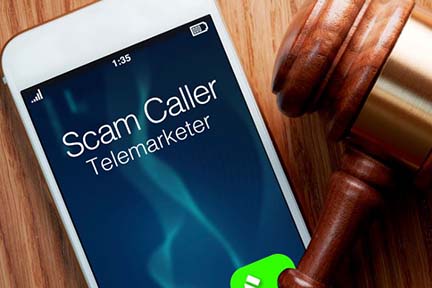
AG Calls on FTC to Increase Obligations on Telemarketers
|
|
|
|

|
|
|
|

Press Release FOR IMMEDIATE RELEASE: August 18, 2022 CONTACT: Chelsea Wuth, 517-241-2112, [email protected] “Create Your Calm” campaign seeks to defuse emotions, LANSING, Mich. — As students and teachers across the state head back into K-12 classrooms this month, the Michigan Department of Health and Human Services’ (MDHHS) Stay Well program is offering educational tools and resources to help create and maintain a calm learning environment. Among the free tools available are child-friendly “Create Your Calm” posters, stickers and magnets. These items demonstrate simple breathing and emotional grounding exercises that anyone can do when feeling overwhelmed, anxious, tense or distracted. The items may be ordered by completing this form, which is available on the “Resources for Schools” page of the Stay Well website. The grant-funded Stay Well program launched in early 2020 to help Michiganders cope with emotional distress caused by the COVID-19 public health crisis. The program is sharply focused on serving youth and their caregivers, including parents, teachers and school counselors. “Numerous studies show the mental health of our young people declined during the pandemic,” said Jody Lewis, Stay Well program director. “That has made teaching all the more challenging, leading to burnout and emotional stress among educators. Create Your Calm is intended as a reminder to kids and adults alike that we can concentrate and learn better when our minds and bodies are relaxed. We hope schools – and youth-oriented organizations of all types – will take advantage of these free resources.” Also available on the Resources for Schools page are recorded webinars with strategies for addressing behavioral and mental health issues among students:
To learn more, visit Michigan.gov/StayWell. |


Press Release
FOR IMMEDIATE RELEASE: Aug. 17, 2022
CONTACT: Bob Wheaton, 517-241-2112, WheatonB@
MDHHS demonstrates strong progress in keeping children safe
Michigan has implemented 67 improvement strategies in four months
LANSING, Mich. – The Michigan Department of Health and Human Services (MDHHS) today described its progress in improving safety and other outcomes for youth in the state’s child welfare system.
The update came during a virtual appearance before Judge Nancy G. Edmunds in U.S. District Court for the Eastern District of Michigan.
“I’m pleased and optimistic,” Judge Edmunds said during the court hearing. “I think everyone seems to be heading in the right direction with the same goal in mind.” She said she would like the monitors appointed by the court to review and validate the department’s implementation of the new strategies and then share with the court the effects of the changes.
In four months MDHHS has implemented 67 strategies identified in a plan it developed in April to improve services provided to youth and families involved with the state’s child welfare system.
“We have made substantial strides in the last few months and will continue to improve our child welfare system,” said MDHHS Director Elizabeth Hertel. “We have devoted significant resources to this goal. Our team – MDHHS staff and our private agency partners – continue to work hard on behalf of children and families. We will not rest until Michigan accomplishes its goal to keep our children safe.”
Some of the improvement strategies that MDHHS detailed today include:
Federal court monitors have been tracking the MDHHS’s progress since a court settlement in 2008 following a 2006 lawsuit by the advocacy group Children’s Rights.
To view additional information about MDHHS’s progress in this area, go to www.michigan.gov/

Press Release FOR IMMEDIATE RELEASE: August 17, 2021 CONTACT: Chelsea Wuth, 517-241-2112, [email protected] MDHHS releases “Tobacco-Free Report Card” for Michigan colleges and universities LANSING, Mich. –The Michigan Department of Health and Human Services (MDHHS) Tobacco Section released the “Tobacco-Free Report Card: Michigan Colleges and Universities,” which reports on the current state of tobacco-free and smoke-free campus policies in Michigan. “MDHHS applauds the schools with 100% tobacco-free campuses and encourages all campuses to go 100% tobacco-free,” said Dr. Natasha Bagdasarian, MDHHS chief medical executive. “Tobacco use is the number one cause of preventable death and disability in Michigan, and at least 99% of cigarette smokers start before the age of 26. In Michigan, adult e-cigarette use is highest among young adults. Tobacco-free policies on college and university campuses are an effective strategy to prevent young adults from using tobacco and help current users quit.” Currently, one in three campuses have a 100% tobacco-free campus policy. The report also includes a list of Michigan colleges and universities, and the grade or score they received as a result of their current tobacco policy with the detailed scoring methodology explained. The report card includes information on tobacco use, secondhand smoke exposure, tobacco-free smoke policies and information on how to receive technical assistance to improve your smoke-free policies. “We are encouraging Michigan colleges and universities to use this report card as a tool to improve the health of their students, faculty, and staff. These policies aim to change social norms, prevent initiation, decrease secondhand smoke and aerosol, and encourage quitting,” says Amanda Gallaher, author of the Tobacco-Free Report Card. The MDHHS Tobacco Section offers training and technical assistance to support tobacco-free and smoke-free campus policies. To request a training or other technical assistance, contact the MDHHS Tobacco Section at 517-335-8376 and visit Michigan.gov/Tobacco to learn more about tobacco prevention and cessation resources in Michigan. There are grant opportunities available to colleges that are not currently 100% tobacco-free to support the adoption and implementation of tobacco-free policies. For residents in need of assistance in quitting tobacco, the Michigan Tobacco Quitline – 800-QUIT-NOW (800-784-8669) – is available 24 hours a day, seven days a week. For more information about the Quitline, visit Michigan.gov/Tobacco. |

Press Release FOR IMMEDIATE RELEASE: August 17, 2022 CONTACT: Chelsea Wuth, 517-241-2112, [email protected] First 2022 detection of West Nile Virus in Oakland County resident Michiganders urged to take proper precautions to prevent mosquito bites LANSING, Mich. — West Nile virus (WNV) has been detected in a blood donation from a resident of Oakland County. The donor has experienced no symptoms of illness. Michigan residents are reminded that the best way to protect against WNV and other mosquito-borne illnesses such Eastern Equine Encephalitis virus (EEE) is to prevent mosquito bites. Routine screening for WNV in blood donations helps ensure the safety of the blood supply in Michigan and in the U.S. Donations that test positive for WNV do not enter the blood supply. In 2021, WNV was detected in seven Michigan blood donors. “We want to remind residents of Michigan that mosquito season is not over and it only takes one bite from an infected mosquito to cause a severe illness,” said Dr. Natasha Bagdasarian, MDHHS chief medical executive. “Take precautions such as using insect repellent and wearing long-sleeve shirts and long pants when outdoors during times when mosquitoes are active.” To date, WNV has been found in mosquitoes collected in Iosco, Arenac, Huron, Genesee and Kent counties, as well as birds collected in Bay and Shiawassee counties. No other human cases have been reported to date. Mosquito pools from Bay, Midland and Saginaw have tested positive for Jamestown Canyon virus. The risk for mosquito-borne illness rises throughout the state over the course of the mosquito season – peaking in August and September. WNV is transmitted through the bite of a mosquito that has picked up the virus by feeding on an infected bird. Most people who contract the virus have no clinical symptoms of illness, but some may become ill three to 15 days after the bite of an infected mosquito. Symptoms of arbovirus infection, like WNV, typically include a high fever, confusion, muscle weakness and a severe headache. More serious complications include neurological illnesses, such as meningitis and encephalitis. The best way to prevent West Nile disease or any other mosquito-borne illness is to reduce the number of mosquitoes around your home and to take personal precautions to avoid mosquito bites. Precautions include:
For more information, visit Michigan.gov/WestNileVirus or CDC.gov/WestNile. |